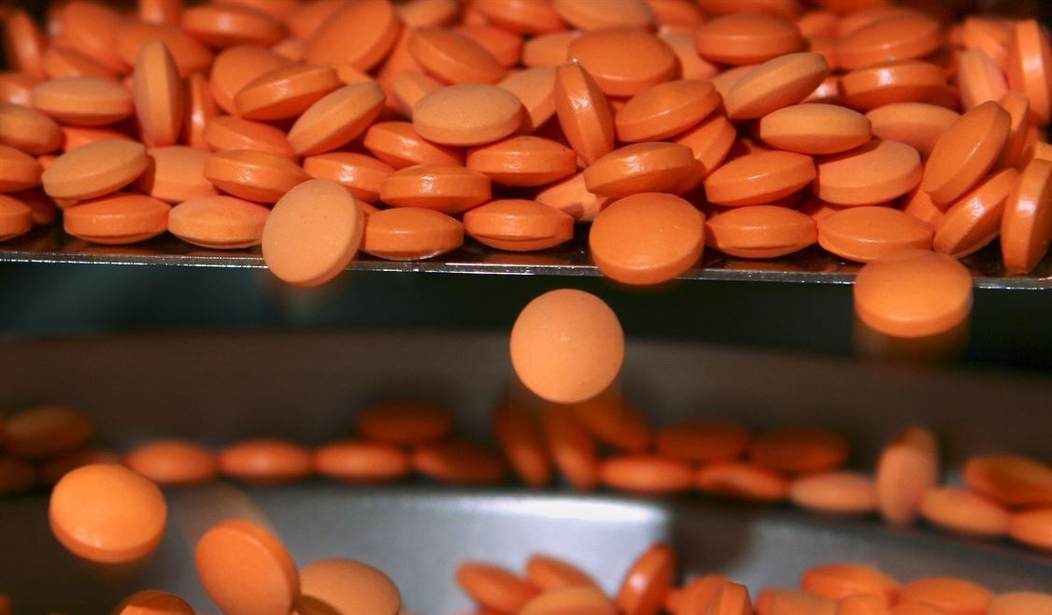While I'm neither a pharmaceutical expert nor a chemist, I am aware of the public's trust — and mistrust — of both the pharmaceutical industry and artificial intelligence (AI), so I assume a new story with a combination of prescription drugs and AI will raise a few eyebrows, if not an outcry from people who want a better understanding of how the Food and Drug Administration (FDA)'s plan on both will make them safer.
The FDA has unveiled a plan to use artificial intelligence (AI) to significantly enhance the efficiency of its processes for approving new pharmaceuticals and medical devices, according to an article published on Tuesday in the Journal of the American Medical Association (JAMA).
Additionally, as reported by The New York Times, also on Tuesday, the FDA announced it would conduct a comprehensive review of chemicals and other potentially harmful ingredients present in foods sold in the U.S.
FDA officials also plan to accelerate the final phases of the drug and medical device approval process, reducing decision times to mere weeks. They cite the expedited procedures of Operation Warp Speed during the COVID-19 pandemic, which enabled rapid responses to the public health crisis, as a model for these improvements.
According to the JAMA article, FDA Commissioner Dr. Marty Makary and Dr. Vinay Prasad, who leads the agency’s division responsible for vaccines and gene therapy, have laid out the agency's strategic priority with respect to the plan to leverage AI, which includes reducing the drug device approvals to matter of weeks.
RELATED: MAHA Win: RFK Jr. Announces Major Change to COVID Vaccine Guidance
Aligned with the objectives of HHS Secretary Robert F. Kennedy Jr., the FDA plans to more closely scrutinize “concerning ingredients” found in U.S. food products but absent in those of other developed nations. The initiative complements the agency’s recent efforts to urge food manufacturers to eliminate artificial dyes from their products.
As outlined in the JAMA article linked above, the FDA’s priorities center on “delivering faster cures and impactful treatments for patients, particularly those with rare and underserved conditions, promoting healthier food options for children, and adopting pragmatic strategies to restore public confidence.”
These goals reflect the Trump administration’s broader commitment to streamlining regulatory processes, thereby facilitating major industries and ensuring faster delivery of products to pharmacies.
Here's more, via JAMA:
Why does it take more than 10 years for a new drug to come to market? Why are childhood chronic diseases so prevalent? And how can regulators adapt to meet the challenges facing clinicians today? These questions are at the forefront for the US Food and Drug Administration (FDA).
The US leads the world in sophisticated cell and gene therapies and other innovative treatments, but in terms of the health of the population, our medical system has been a 50-year failure. Forty percent of US children now have a chronic medical condition1 and 1 in 6 has a neurodevelopmental disorder. Life expectancy has plateaued or fallen and is not commensurate with health care spending.
Over recent decades, obesity, diabetes, colon cancer, depression, and autoimmune diseases have increased in young people, and early-onset Alzheimer disease has increased by at least 300%. Historical and comparative global data do not support a genetic etiology for this rise, nor a deficit in willpower. Fresh new ideas are needed to address root causes and develop innovative approaches.
As has been proven throughout decades of advances in most fields, new products and processes, or updates and improvements of existing products and processes, can be used for causes both good and bad. From aviation to space flight to computerization to now AI, both good guys and bad guys can use or abuse innovation.
Toss in the public's general distrust of Big Pharma — the pharmaceutical industry — and often a barrage of conspiracy theories promulgated by social media keyboard jockeys, and the FDA announcement can bring hope to some, and increased mistrust to others.
READ ALSO Robert F. Kennedy Jr. Reaffirms MAHA Goals, Targets Additives He Will Remove From the Food Supply
‘No More Big Pharma’: FDA Commissioner Announces Major Policy Changes
Drs. Makary and Prasad wrote in the JAMA article:
The F.D.A. will be focused on delivering faster cures and meaningful treatments for patients, especially those with neglected and rare diseases, healthier food for children and common-sense approaches to rebuild the public trust.
However, as noted by The Times story linked above, several elements of the proposals discussed in JAMA were greeted with skepticism — especially the suggestion that artificial intelligence is capable of significantly reducing the lengthy and meticulous process of reviewing applications submitted by companies seeking approval for new drugs or high-risk medical devices.
Stephen Holland, a lawyer who formerly advised the House Committee on Energy and Commerce on health care, was quoted by The Times as saying:
I don’t want to be dismissive of speeding reviews at the F.D.A. I think that there is great potential here, but I’m not seeing the beef yet.
As I earlier suggested, the concerns of Holland — "rushing" to incorporate AI into multiple fields and industry applications — are also of concern to untold numbers of both experts and everyday people, I suspect, due in large part to a lack of understanding of how AI works, along with past and present concerns about the abuse of technology.
Here's more from The Times:
The agency plays a central role in pursuing the agenda of the U.S. health secretary, Robert F. Kennedy Jr., and it has already begun to press food makers to eliminate artificial food dyes. The new road map also underscores the Trump administration’s efforts to smooth the way for major industries with an array of efforts aimed at getting products to pharmacies and store shelves quickly.
A major A.I. rollout closely follows the release of a report by Mr. Kennedy’s MAHA Commission, which uses an acronym for Make America Healthy Again, that was found to be rife with references to scientific research apparently fabricated by an artificial intelligence program.
For some cases, the F.D.A. officials proposed speeding major drug approvals by requiring only one major study in patients rather than two, a practice the agency has used in recent years. The pandemic provided a precedent, they said, for accelerating the process.
“We believe this is clear demonstration that rapid or instant reviews are possible,” Drs. Makary and Prasad wrote.
The Bottom Line
While the FDA's new AI-incorporated plan comes, in part, In response to a Trump administration and DOGE (Department of Government Efficiency) plan to reduce the size of the FDA, turning to advanced technologies — particularly AI — is an essential step in streamlining the agency's operations, as described in this article, likely sooner than later.














